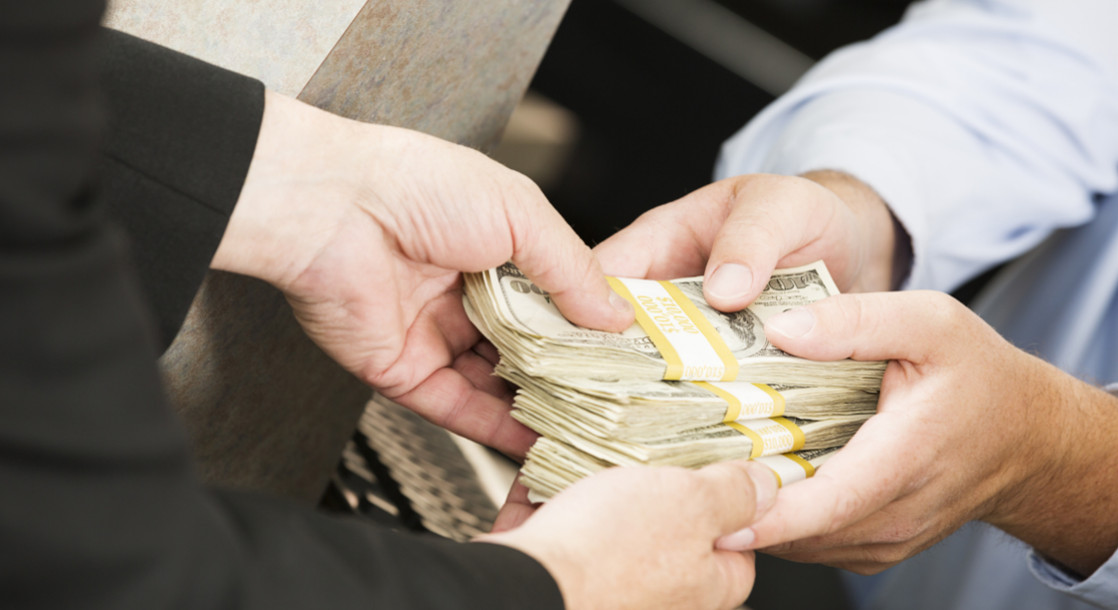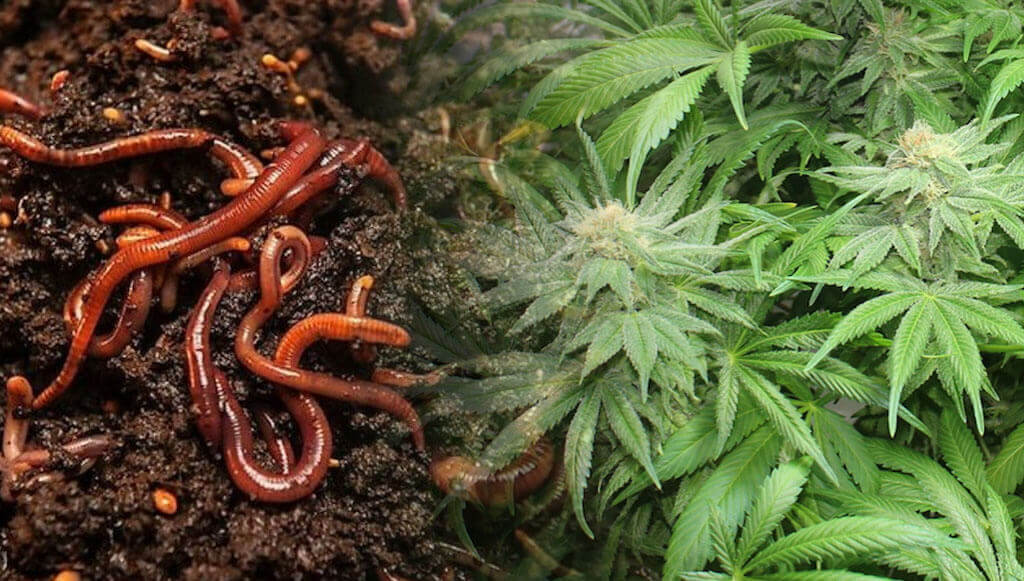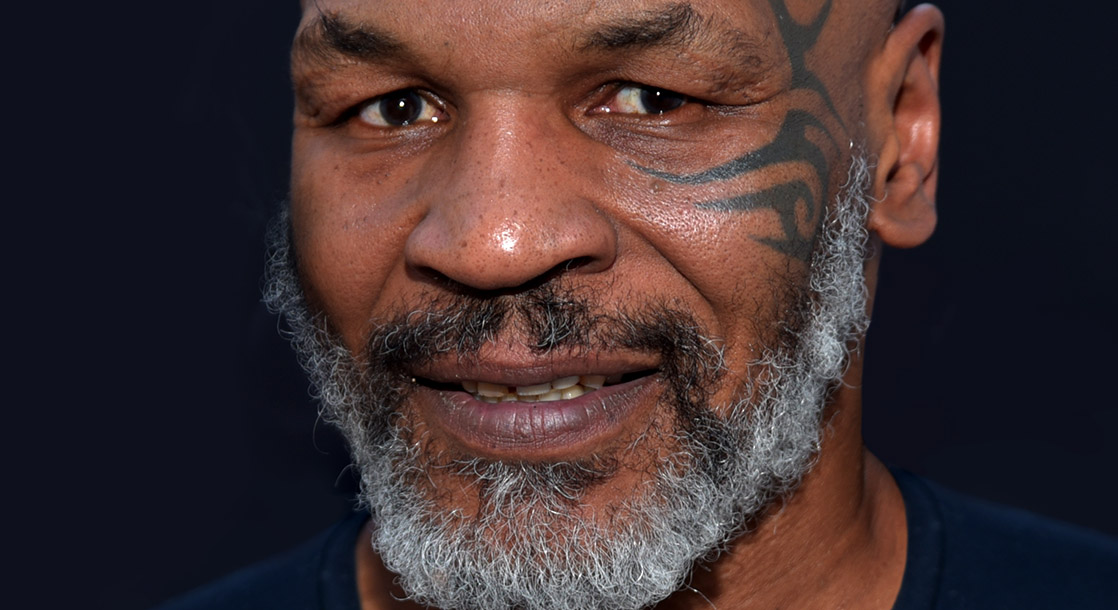Photo via Alina555
After California voters passed Proposition 64 to legalize adult-use cannabis, state treasurer John Chiang convened a working group to address to the shortcomings of mainstream financial institutions to serve the cannabis industry. In large part, the working group was tasked with researching the feasibility of a public bank for the industry.
"The public bank is one of the pathways that we want to further explore, to see what can be offered to address the holes that need to be filled in regard to making sure that cannabis businesses get to operate above board and out of the shadows," Chiang tells MERRY JANE. In following up on the recommendations of the cannabis banking working group, one of the first steps is to carry out a feasibility study to see if a public bank is even viable.
"This can be the full equivalent of what people imagined with a private sector bank," Chiang says. The study would look into what characteristics the public bank could feature, what kind of brick and mortar facilities it would have, whether it would include an online ATM, who would handle check clearing functions, and other types of questions. "We want to hear from everybody as to what services [it features] and how those services are provided before we come up with a design of a state bank," Chiang says. His office also reached out to the state Attorney General's office, who agreed last month to do a legal analysis of what would be required for a public bank.
While some argue that a public bank would fail upon arrival, Chiang says arguments like that assume nothing would change between now and when the bank would actually begin operating. "The question is, do you expect everything to be exactly the same a year from now as they are today? I don't expect them to be identical," Chiang says. "Even members of the same party as the president and the attorney general are pushing back; they want to see changes. So that's part of our recommendations: We're building a national consortium of representatives from the government, from the cannabis industry, from financial institutions, and others, who are trying to push the thinking of the Trump administration and Congress and regulatory agencies so that we can make progress, and so we don't put individual businesses and everyday Americans in harm's way."
In short, for a public bank to truly work, there may need to be a legislative fix on the federal level. But as it stands now, it's not so simple.
Because cannabis is a Schedule I drug in the same federal category as heroin and LSD, those in cannabis industry are generally barred from most mainstream financial institutions, which are insured by the federal government. That means the cannabis industry is forced to operate mainly in cash, which poses a massive public safety risk. The only way around this risk is to put the money in secure accounts and stop dealing in cash.
If a public bank were viable, however, it would still need to interface with the federal wire system to move around money — and that, in and of itself, could be an insurmountable feat, explains Joshua Laterman, founder and CEO of a new trade group called the National Association of Cannabis Businesses (NACB), which aims to be a “self-regulatory organization” for the U.S. cannabis industry by requiring its members to collectively develop, agree to, and abide by best business practices — finances included. Laterman previously worked on Wall Street, negotiating with the federal government on behalf of major banks.
Not even cryptocurrency could solve the problem, Laterman says, because avoiding the letter of the law would be worse than actually putting weed money on the federal wire transfer. "As the control officer of my bank, I learned alongside other control officers the importance of being able to track money, and the lethal results of cash economies," he says, thinking back to 9/11. "In a big cash economy, there's drugs, guns, bombs, or terror funding. What we learned is that never again will we not pay attention to cash economies or monitoring the federal wire system."
Whether such a public bank for cannabis would be a large or small, it's important for a bank to know where money is coming from before it enters the bank's own system. There's a concept in banking called "enhanced due diligence," Laterman explains, meaning a bank must understand and approve the source of funds before accepting them.
Large first-tier banks like Citibank, Wells Fargo, or Bank of America are heavily regulated by the federal government. "No bank has ever survived a federal indictment, so unless you have an opportunity to make a huge amount of money, like maybe the full value of the bank, you'll be entirely put out of business by Jeff Sessions if you do something wrong," says Laterman. For example, if a large bank were to give a loan to a cannabis client and the federal government discovered it, they could decide to make an example out of the bank, indict it, and cause it to lose all its value. "So there's no reason for a large bank to even come close to cannabis, given the current environment, and the environment got even more chilly when Sessions rescinded the Cole memo," he says.
Tiny banks, on the other hand, have a greater risk-reward. By deciding to take cannabis cash, they're helping to take cash off the streets, and if they feds do shut them down, they don't have the share price to lose as large banks do, Laterman says. These smaller banks are performing a social service, but they're also less equipped to surveil bank accounts, he explains. Only larger banks have the proper technology and knowhow to take in that much cash without taking the risk of potentially abetting a shady business or cash-funded terrorism.
Small banks also don't physically have enough space in their vault to hold all the cannabis money out there, Laterman continues. "Small banks don't have enough ability to consume all the cash, and don't have the best surveillance to make the government feel like they have it under control," says Laterman.
And there's no way for California to have a public bank for cannabis that doesn't have anything to do with the federal government, without then becoming embroiled in a dispute with federal regulators, he adds. "Moving forward hard on a state industrial bank that doesn't have any federal connections, they’ve got to be ready to have a battle with the federal government," Laterman says. But that doesn't mean there's not a solution that could include the feds.
"Imagine if the cash of California is a full two-liter bottle of Coke, and the place to put it is a four-ounce Dixie cup: That's the discrepancy of the amount of cash that needs to be handled and the capacity if it's just a small couple of banks," he says. "It can't work, unless a big bank steps up to help make it work, and I don't think they're going to do that."
So getting in close with the federal government is the next best path to ensure that the bank doesn't go under, or its executives (who would ideally be poached from or have background at large financial institutions) don't go to prison. Steven Mnuchin, Secretary of the federal Treasury, seems sympathetic to finding a solution to handling this cash economy, says Laterman. "The issue is convincing the federal government to change their perspective, change the law, or provide a safe harbor or accomodation," he says. (A “safe harbor,” or an exception to particular laws, is a negotiated agreement between parties that details a certain set of conditions that regulators won't enforce against, say, federally illegal canna-businesses, or banks holding money for them.)
"If you could get the Department of Justice to agree to a very specific way California could handle its money — a safe harbor — that would work, but it's tough sledding," says Laterman. "[Their] principle concern is how to make sure they're not giving access to the federal wire transfer to bad actors." Nonetheless, if the government were to agree to such a safe harbor, then California would also need to make sure then that the cannabis industry is exclusively not in cash, so as to make everything auditable, easy to trace, and to collect taxes. And that's not something the cannabis industry is used to, or even altogether amenable to such change.
"California should be credited with tremendous creativity, and it's great to bring those teams together," says Laterman of Chiang’s efforts — but he insists cannabis needs to become more professionalized to advance the cause, and to be better received in potential banking negotiations with the federal government.











